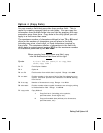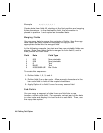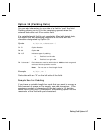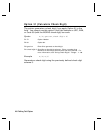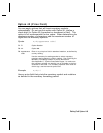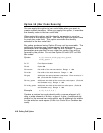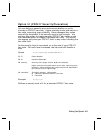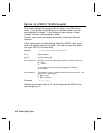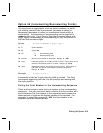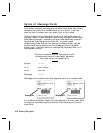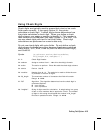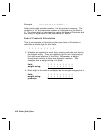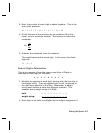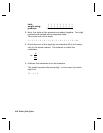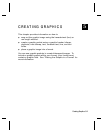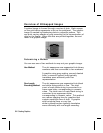
Option 60 (Incrementing/Decrementing Fields)
You may have an application, such as serial numbers, in which
you need a numeric field to increment (increase in value) or
decrement (decrease in value) on successive tickets within a
single batch. Incrementing or decrementing can be applied to
numeric
data only. If you have a field that includes letters and
digits, apply incrementing or decrementing to only the portion of
the field that contains digits.
Syntax
R,60,I/D,amount,l pos,r pos
p
R1. R Option Header.
R2. 60 Option
60
.
R3. I/D
I
incrementing field
D
decrementing field
R4. amount Amount to increase or decrease. Range:
0
-
999
.
R5. l pos Leftmost position in inc/dec portion of field. If this value is not
entered, the default value
1
is used. Range:
0
-
2710
.
R6. r pos Rightmost position in inc/dec portion of field. If this value is
not used, the entire field length is used as the default.
Range:
0
-
2710
.
Example
R,60,I,5,1,6
p
Increments a field by 5 each time the field is printed. The field
increments beginning with the first left position and ending with
the sixth position.
Fixing the First Number in the Incrementing Sequence
There are two ways to enter the first number in the incrementing
sequence. You can use batch data to define the first number as a
fixed character.The first number in the sequence must contain the
same amount of digits as the highest number to be counted. For
example, to count the numbers
1
-
999
, the first number in the
sequence must be entered as
001
.
Defining Field Options
4-13



